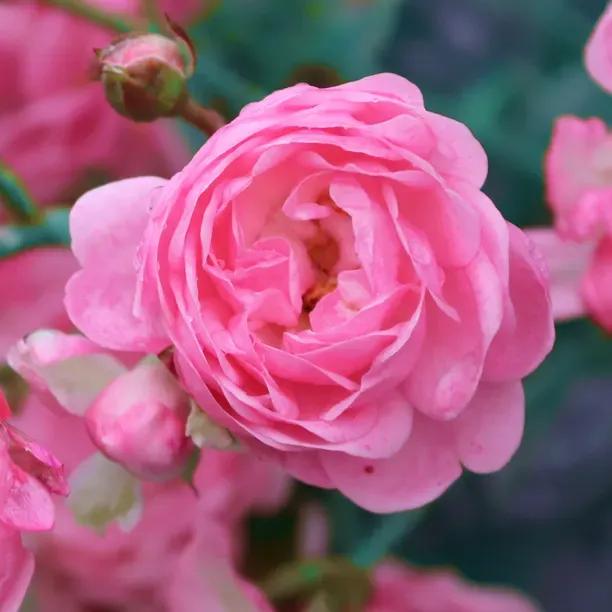Chapeau de Napoleon Old Rose Bushes

The details
- Summer flowering only.
- Height: 1.5m
- Colour: Pink
- Shape: Double
- Scent: Strong
- Flowering period: Once in summer
- Type: Shrub
Recommended extras
Description
About Chapeau de Napoleon
Chapeau de Napoleon is an open shrub rose with delightful fully double, deep pink flowers that resemble those of a cabbage rose. The buds open with spines around the sepals, known collectively as the calyx, resembling moss. This gives the rose its alternative name of 'Crested Moss'. It is heavily scented, reaching a height of 5' when mature and may need support when fully grown. It requires firm pruning to achieve a well grown shrub as the natural habitat is drier and hotter and our British climate encourages lusher growth. Because of its origins it will thrive in poorer soils but, as with all roses, will respond to mulching in spring and autumn.
Have a look at our list of shrub roses here.
Great for your garden
Chapeau de Napoleon is a rose of great beauty with lovely flowers and good scent. However it can get leggy and lax in growth and is most suitable in mixed plantings or with support . It is at its best when grown in a mixed shrub border, using smaller evergreen shrubs such as Sarcococca confusa or Osmanthus heterophyllus 'Variegata' that will both support the rose and provide a backdrop for the flowers.
Chapeau de Napoleon characteristics
- Colour: Deep silvery pink
- Flower shape: Fully double cabbage flowers
- Fragrance: Strong rich perfume
- Final height and spread: 5' x 4' (1.5m x 1.2m
- Flowering season: Summer flowering only
- Disease resistance: Reasonable
Trivia
Around each bud of Chapeau de Napoleon the calyx, the group of sepals surrounding the bud, is greatly enlarged and covered with soft green spikes called moss. This calyx is oddly shaped with two peaks on each side giving the rose its name. The rose was discovered on the wall of a convent in Fribourg in Switzerland and then propagated and sent out by the grower Vibert in 1827.
The centifolia roses were used extensively in works by Dutch and Flemish masters, earning themselves the name of La Rose du Peintres. The Dutch claimed to have raised Centifolia roses but it is much more likely that the Spanish conquerers took it to Holland having, in turn, obtained it from the Moors. The Moors were great gardeners and loved roses in particular transporting them to gardens in conquered territories. Because of their glorious scent, they are still grown around Grasse, together with the Damask Rose, for the perfume industry.


